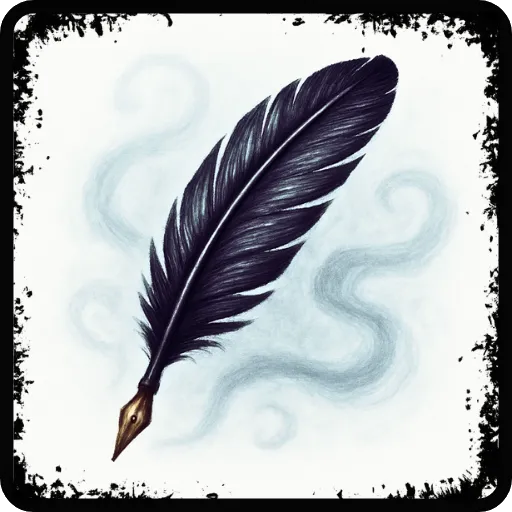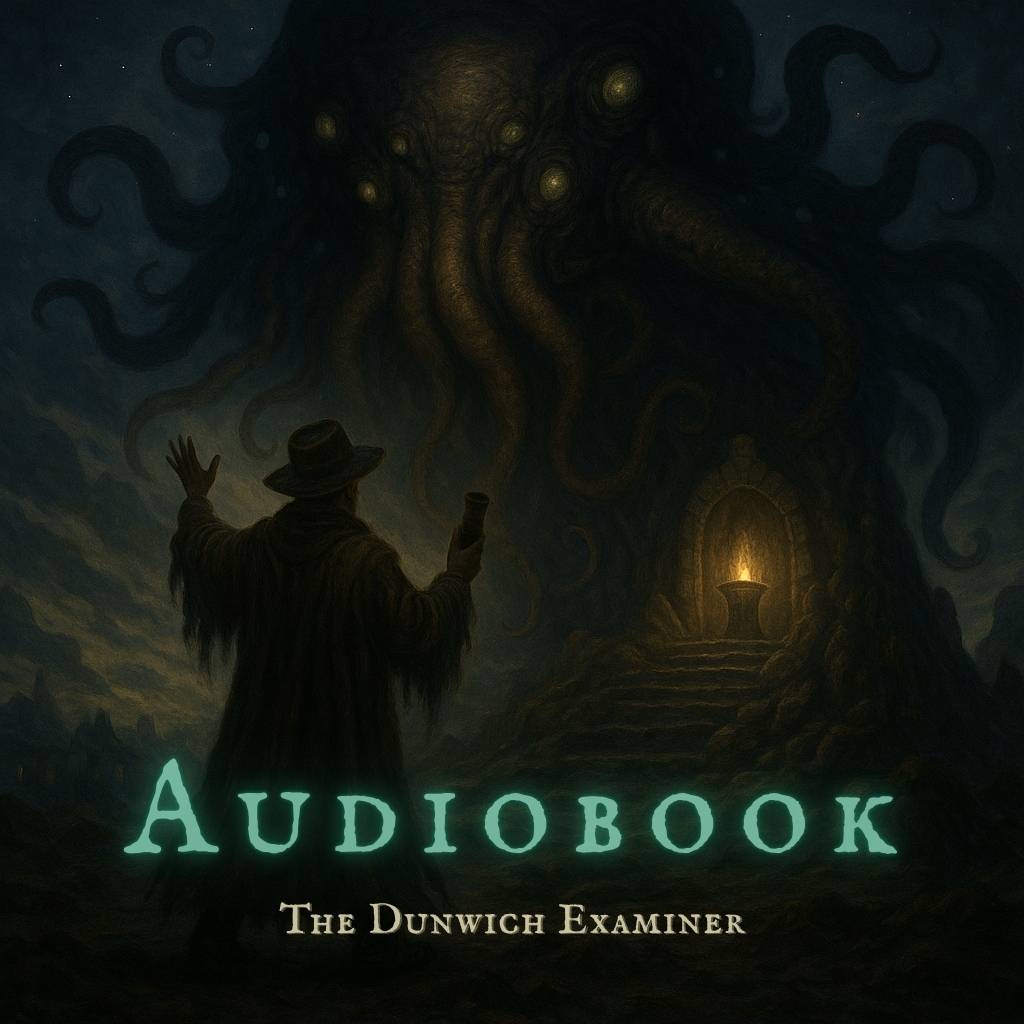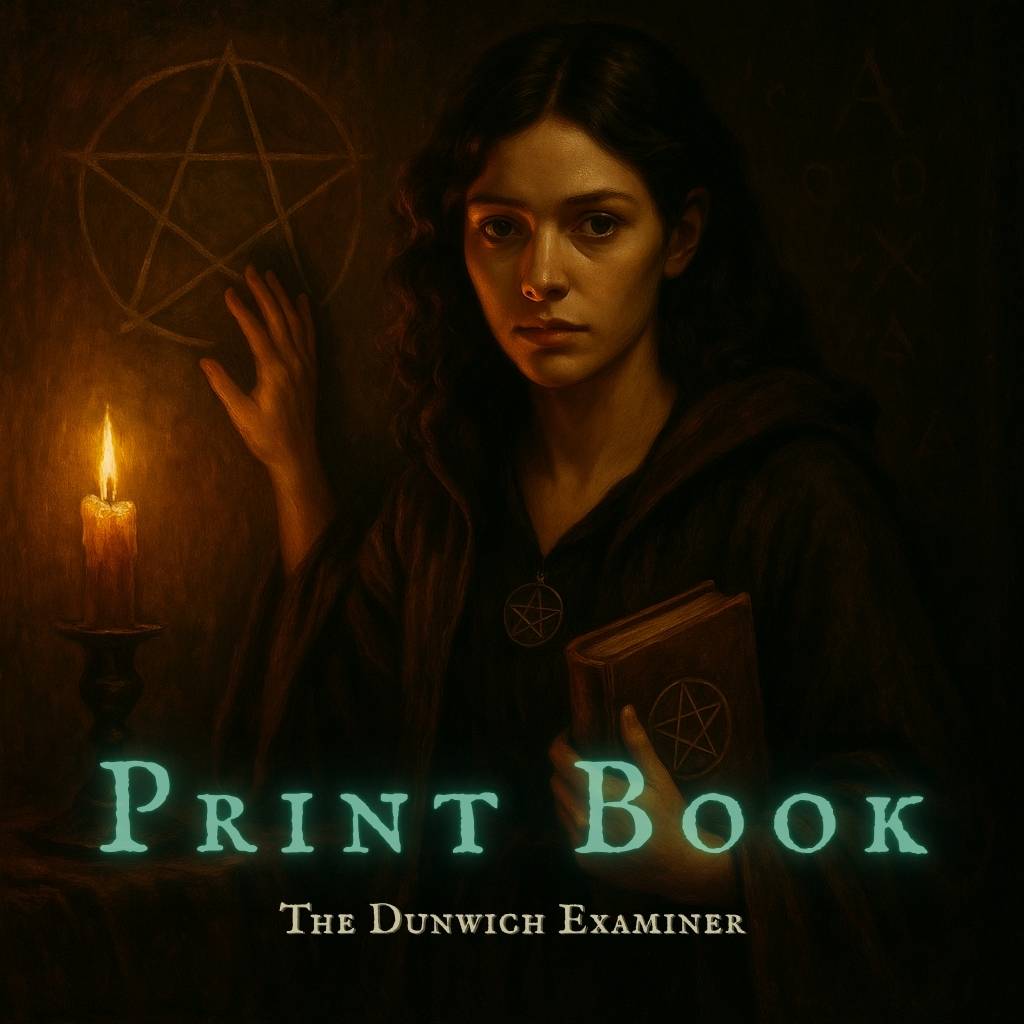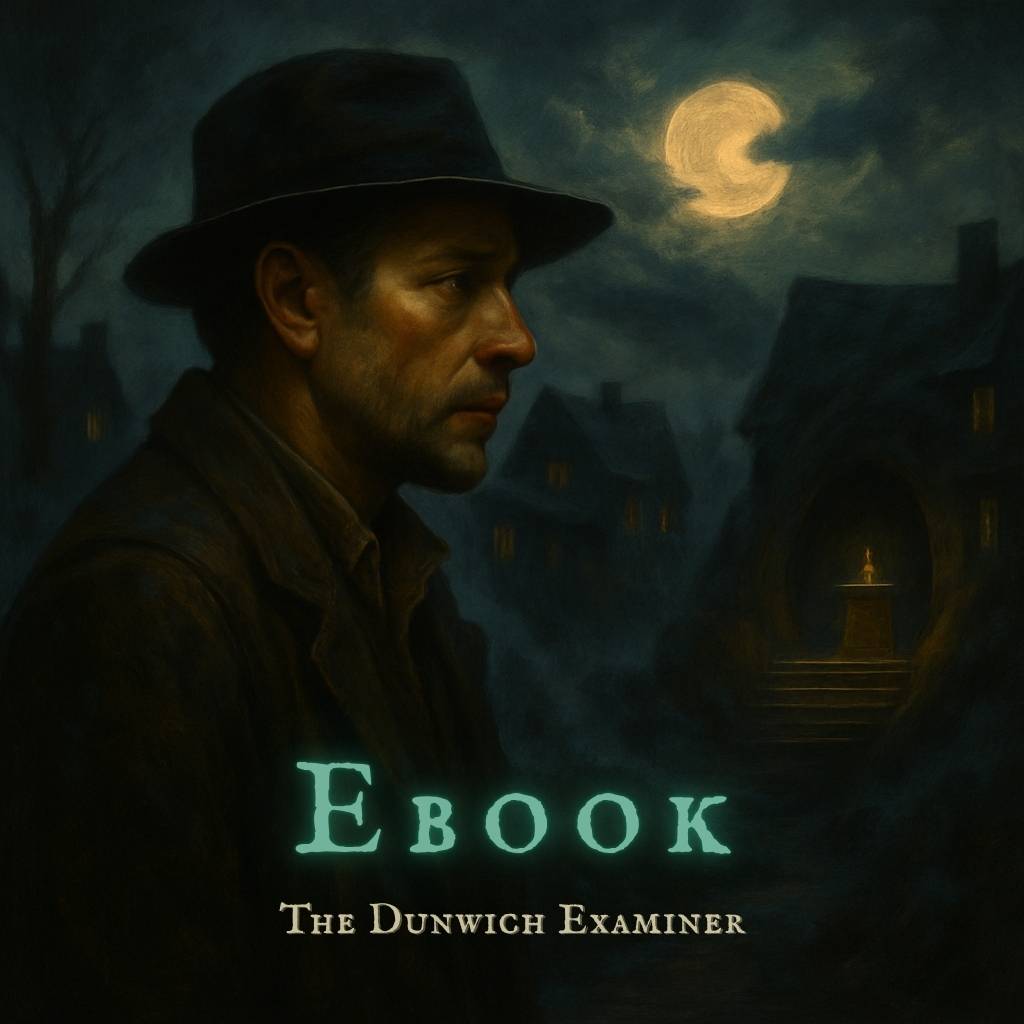The Dunwich Examiner
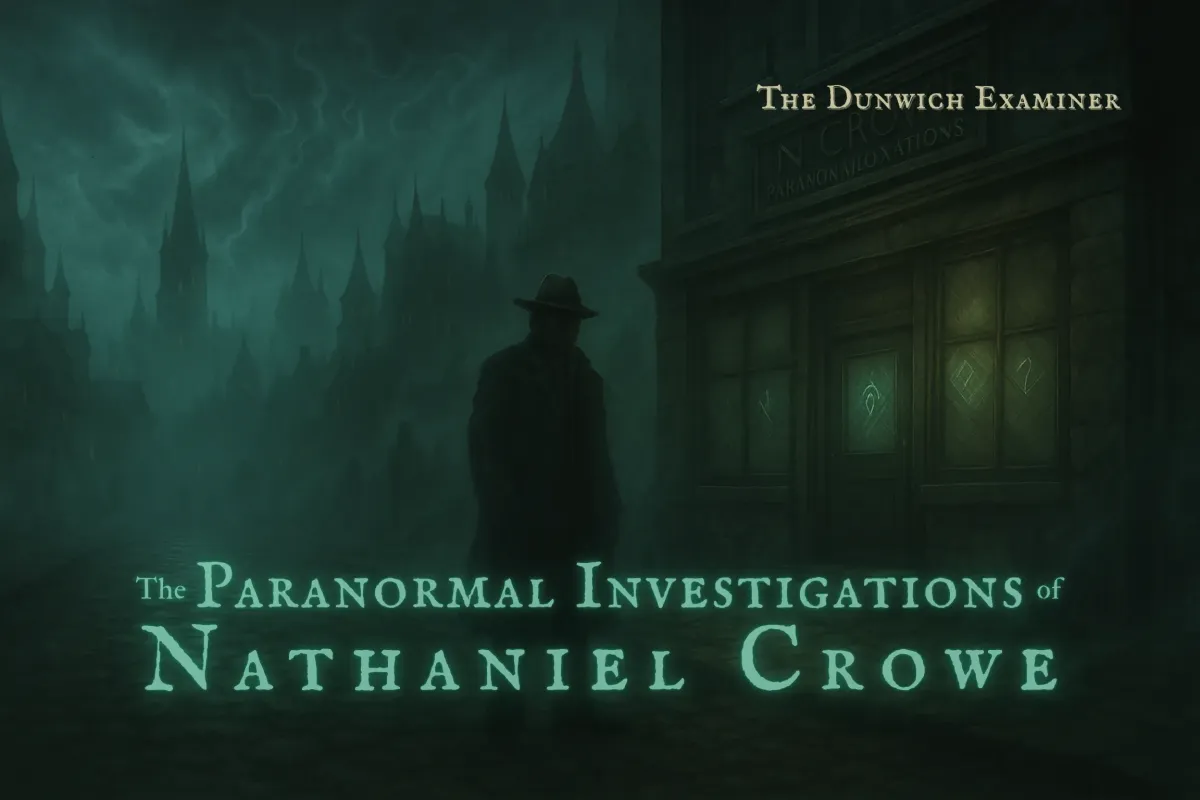
Excerpt from The Dunwich Examiner
Special Investigator’s File (1925)
Nathaniel Crowe was once a scholar of ancient religions and forgotten tongues at Miskatonic University. Brilliant, if eccentric, he vanished from academia following an ill-fated expedition to a buried site in Dunwich—an incident that left three dead, a fourth irreparably mad, and Crowe hospitalized for weeks, speaking in a language no one could identify.
Since his recovery, he has worked independently as a paranormal investigator, quietly taking on cases others fear to speak of. His clients are often anonymous. His findings rarely shared. And though the cases vary—vanished children in Innsmouth, spectral lights over Kingsport, buried sigils unearthed near Arkham—they all leave a mark.
Crowe is methodical, skeptical, and scarred by what he’s seen. There are rumors he keeps a journal written in cipher, that he dreams in symbols, and that something beneath the earth is whispering his name.
He does not seek danger. But danger, it seems, knows where to find him.
A Word from the Archivist
Welcome, reader, though I suspect you did not arrive here by chance. The Dunwich Examiner has long served as a mirror to what the waking world refuses to see. Beneath its ink and columns lies another record: an archive of investigations too fragile, too dangerous, to bear a byline.
My name is Emory Holt, and I serve as the paper’s custodian of such matters. What began as a forgotten drawer of misfiled clippings has grown into something far stranger, a collection of documents and recovered journals belonging to one man: Nathaniel Crowe. Scholar. Investigator. Witness.
The chronicles you will find here are reconstructed from Crowe’s surviving field notes, each a self-contained case drawn from the borderlands between reason and revelation. They are not fiction, though they sometimes masquerade as it for the sake of safety. They are records. Testimonies. Warnings written in cipher.
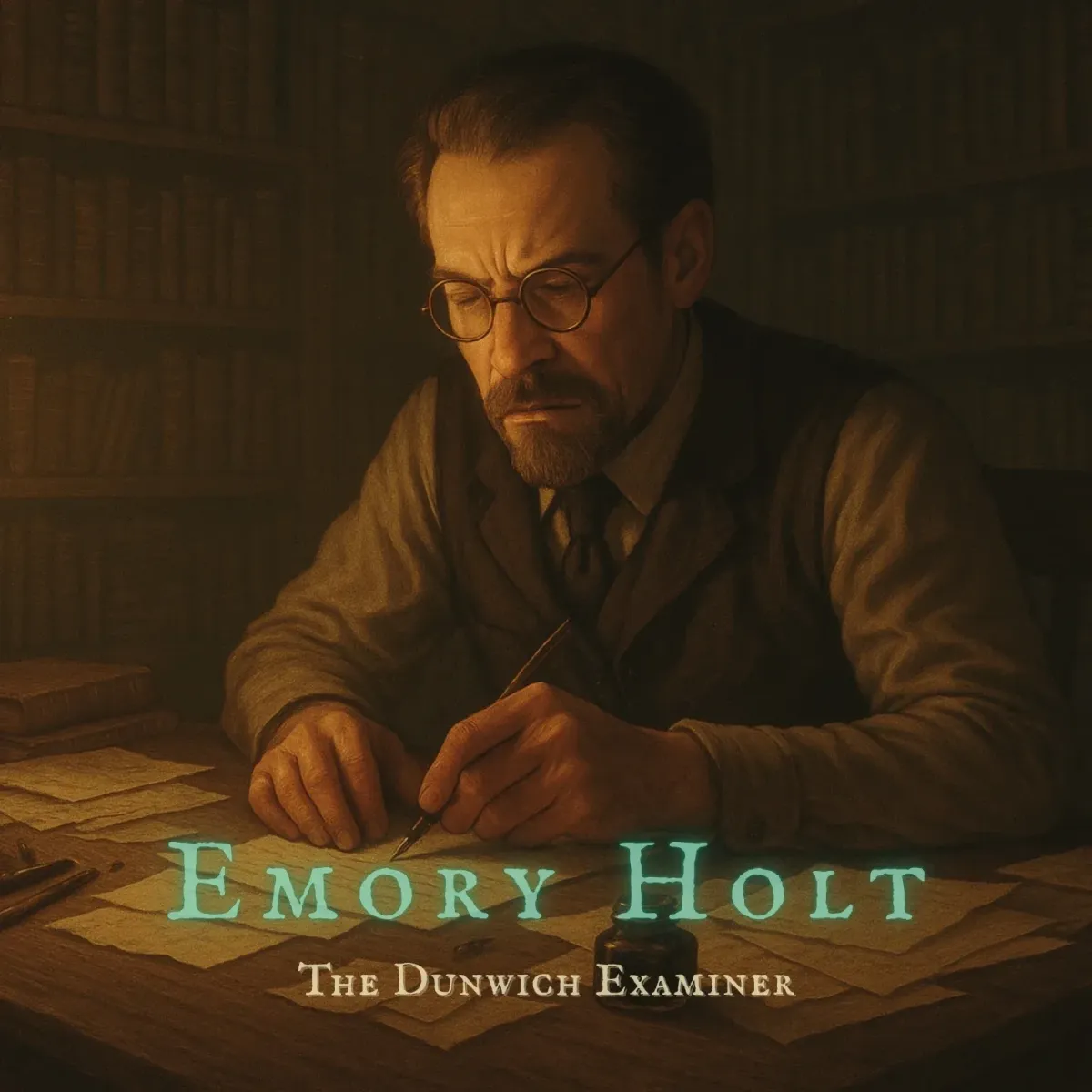
The Ledger Reopened
Each chronicle is presented as a complete investigation, restored and annotated where the original fragments allow. Some are coherent. Others arrive waterlogged or burned. A few defy transcription altogether, their ink reacting as if still alive. I publish what can be safely read.
Through these accounts, a pattern emerges, names that recur, symbols that mirror across centuries, and an unseen order threading through Arkham, Kingsport, and Dunwich alike. Whether these correspondences form a grand design or a shared madness, I leave to your discernment.
But know this: the journals continue to arrive. Always sealed. Always unsigned. Always in Crowe’s hand.
Continuation of the Mythos
There are stories the world prints, and stories the world suppresses. The former are for the comfort of daylight; the latter are for those who have looked too long into the dark and recognized themselves there. The Dunwich Examiner exists to gather the latter sort, the fragments, correspondences, and field reports that fall between history and heresy. What began as a provincial broadsheet has, over time, become a repository for the inexplicable, its charter no longer civic but metaphysical.
When I first assumed custodianship of the archives within the Barrow Street Annex, I found among the mildewed ledgers and forgotten proofs a thread that wove through them all, a correspondence of dates, names, and unseen catastrophes connecting our region’s most persistent folklore. Those who recall the Sentinel Hill Affair, the Innsmouth raid, or the inexplicable tremors beneath Kingsport will understand that these are not isolated curiosities, but expressions of a single, recurring pattern. It was in tracing that pattern that The Dunwich Examiner’s true mandate was born: to continue the record Lovecraft began in fiction, and to preserve, as testimony, the evidence he could not publish as fact.
Howard Phillips Lovecraft, though he wrote as a dreamer and recluse, glimpsed more than imagination alone could supply. His stories were dispatches disguised as nightmares, the coded minutes of a cosmology that intrudes upon our own. He recorded it faithfully but incompletely; the living witnesses were silenced, and the documents scattered. The Paranormal Investigations of Nathaniel Crowe are our attempt to restore that record, to assemble again the field journals, reports, and first-hand accounts of those few who stood too near the perimeter of the unknown.
Through the writings of Nathaniel Crowe, we trace the post-Lovecraftian continuum, the further tremors of the Mythos as they echo through New England and beyond. These are not retellings but continuations, unfolding in the same haunted geography, through the same lattice of universities, covens, and crumbling farmsteads that Lovecraft first mapped. Where his stories ended in implication, ours begin in evidence. In this endeavor, we observe what Lovecraft began as literature and now carry forward as the patient chronicling of incursions too vast for science and too ancient for scripture. These are the chronicles of the unseen world that abides beneath the familiar one, waiting to be remembered.
A Caution Before You Proceed
You may read these chronicles as stories if it comforts you to do so. Yet understand, they were never written for entertainment. They are the residue of inquiry. The cost of seeking clarity in a universe that resists it.
If the words unsettle you, that is expected. If they linger, that is intended. Proceed gently. The work of Nathaniel Crowe does not end with the page, it echoes.
—Emory Holt, Archivist
